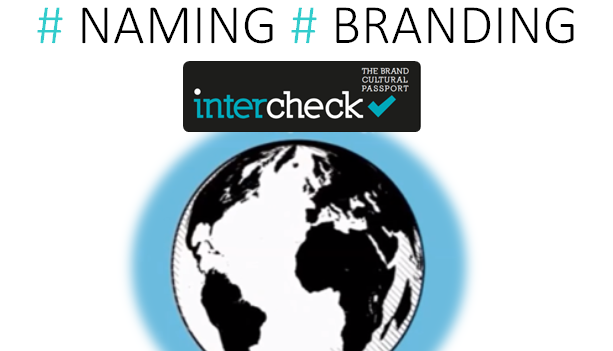Comment t’appelles-tu ?

Globalisation is widely associated with the English language, the common language of the business world and social media, however despite English being the most used language online, it is still just one of over a thousand languages spoken in the world. Zimbabwe alone has sixteen official languages, so when we are to imagine the release of a new foreign brand in Zimbabwe, we can safely assume that on first sight the locals wouldn’t all pronounce it in the same way.
Arguably, good, often quite in-your-face marketing can to an extent ‘teach’ consumers how to pronounce a brand name, but before it even gets to fierce advertising, the name needs to be somewhat pronounceable in a consumer’s mother tongue.
In an ever-increasingly global world it is important not to overlook the diversity of this planet full of potential customers. Alongside gender, age, occupation, education (and all other things you fill out on a tax form) there are other important factors such as language(s) spoken, cultural influence and religion that marketers should take into account, especially when creating a name for their brand. No matter how good a product or service may be, a strange, offensive or gibberish-like name could really put people off.
Over time, companies have always had marketing blunders; from deeming it the right time to change a classic due to misjudging market research, as in the case of the 1980s ‘New Coke’ flop (i.e. there never will be a right time), to spending millions on advertising campaigns that end up horribly backfiring by offending the masses – something that still happens all too often it seems. However, one of the biggest mistakes can be made at the very crucial beginning of a brand’s life: choosing a brand name.
A poor name, a good name? It may sound like a personal taste issue more than anything, but there is such a thing as an effective brand name. The process ofbrand name creation, which can be done in-house or carried out by linguistic and marketing experts in a specialised agency, involves setting a style and outlining the message to be communicated through the name. Name creation can be fun, but it needs to be particularly selective when the target market spreads across various countries. It is agreed that English is the lingua franca; however this does not mean that the naming process for a global brand simply ends at existing English or created names with English sonorities. In fact, if well done, the process shouldn’t simply end at the point of creating a name…
A highly valuable service increasingly being used by global companies is linguistic-cultural brand name testing; a specialist and focused service where candidate names are presented to linguists and marketers native to the language and country concerned. They provide feedback on ease of pronunciation and understanding, pleasantness, suitability, interpretation, and any problems with the name (proximity to a local brand, impossibility to pronounce in native alphabet, offensive meaning, etc.) Brand name testing cannot report on people’s personal preferences, but going through this process does greatly decrease the chances of releasing a brand that screams something incredibly rude in a foreign target market, for example. It is a crucial tool that helps to focus the branding process; allowing to draw up a more precise shortlist of suitable names, as well as ensuring a name that is more universally successful at achieving the goals set out during the name creation process.
There is an extensive list of brands that could have benefitted from this service, or that would if they ever decided to go global. With great ambition for global expansion comes a great need for international linguistic and cultural awareness, for the sake of the brand name itself, let alone the product or service being offered. Just one example of a brand that could have avoided some embarrassment is Ford’s Pinto; released in Brazil in the 1970s it wasn’t exactly well received, as Brazilian Portuguese slang for male genitalia.
It is true that for brand names in a global market, some things are inevitable: we are still faced with a seemingly age-old Brit versus American debate over how Adidas should be pronounced (I stand by “addy-dass”) and eventually Pepsi came to accept that Argentinians just weren’t going to pronounce their brand the intended way, because of accent and habit, so the corporation went with the flow and renamed to ‘Pecsi’ in Argentina. More recently, Nokia’s Lumia phone model caused a stir in the media when it was ‘discovered’ that it means ‘prostitute’ in Spanish. News to many Spaniards not that well versed in Gypsy-influenced Spanish slang, it has been revealed that Nokia was well aware of this meaning, but were confident enough (thanks to extensive linguistic-cultural name testing) that it would not be a significant issue or immediate interpretation of their shiny new phone.
Whilst on placement at Nomen I have become much more aware of the implications of globalisation in naming, an aspect of branding that is much less talked about than logos and brand image, but that is by no means less important. Despite my academic focus on marketing and intercultural communications it is through my role as a linguistic assistant for the Intercheck department (Nomen’s brand name testing service) that I have learned the most about the dynamic links between language, culture, brand perception, and brand acceptance. In a world with rapidly growing and evolving populations, increased spending power, and more and more brands created daily, the branding niches of brand name creation and brand name testing will become increasingly necessary for successful global branding. All-in-all, thenaming and name testing processes should not be rushed or overlooked as the reality is that they help to make a brand effective, appealing, successful and truly in the now (and tomorrow).
Take your time and be smart – a brand name holds a lot of importance and power!
Source : https://www.linkedin.com/pulse/comment-tappelles-tu-jenna-woodman